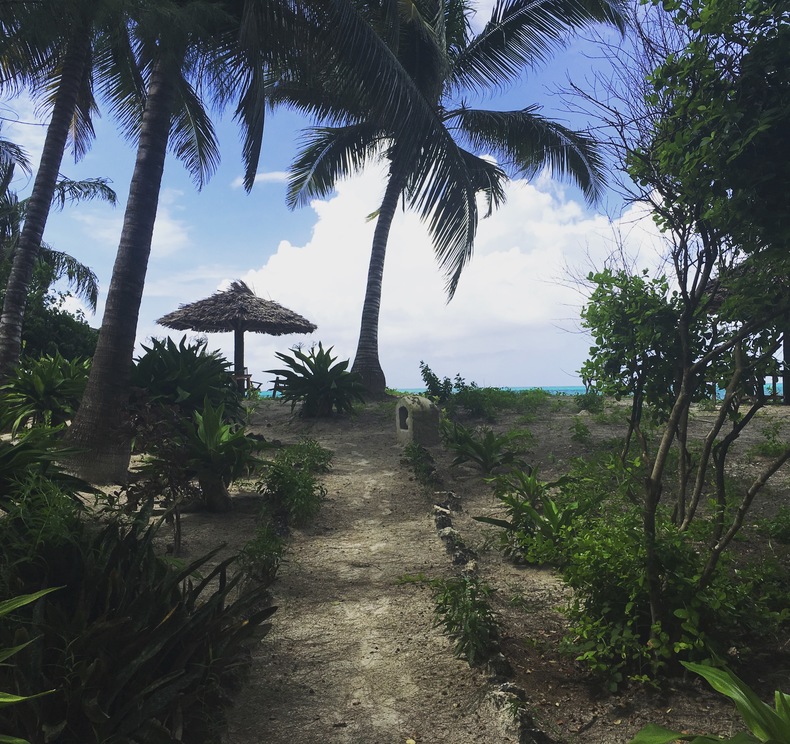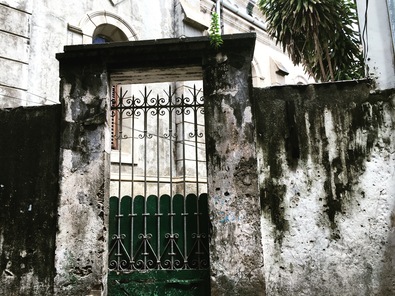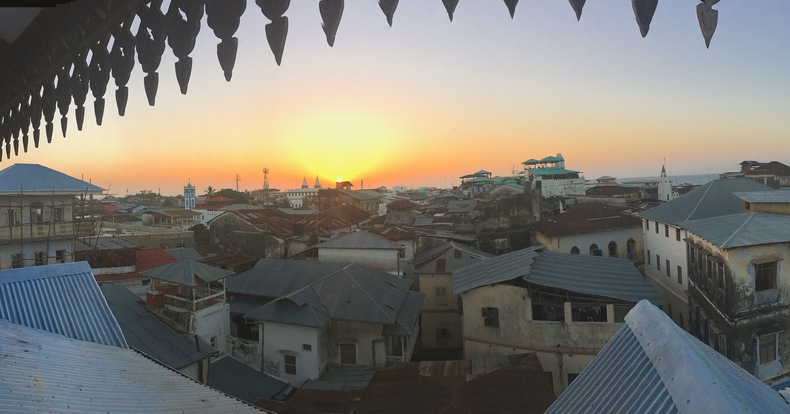Zanzibar is a picturesque, mystical place with exquisite beaches and turquoise waters. Swahili is the most commonly spoken language and many people practice Islam, though people with different religious beliefs seem to coexist entirely peacefully and with ease. We were told that most Zanzibari Muslims are Sunni. Zanzibar is an ‘hakuna-matata,’ multi-cultural place, in part due to tourism and the prevalence of expats seeking serenity or long-term escape. Across the island, you will encounter the contrast of local women fully covered in vibrant textiles alongside sunburnt tourists in bikinis. There is a noticeably strict gender contrast in terms of behaviour in children and adults. While boys will boldly ask tourists to grip their hands and spin them in circles on the beach or for money, girls will shyly smile and hide behind their mothers or clothing. When I was alone, little girls would shyly approach to say hello and ask me my mother’s name.
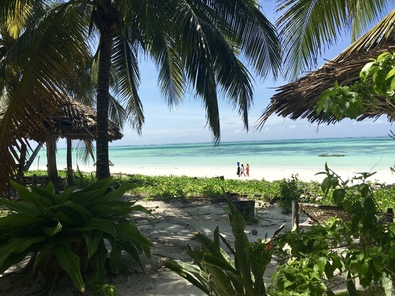
-Near Paje
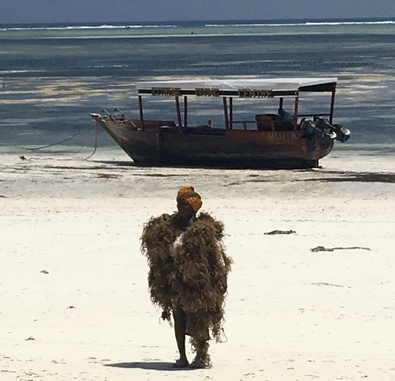
Seaweed is collected by placing rows of long sticks upright in the ocean and is then gathered by hand
-Near Pwami Michamvi
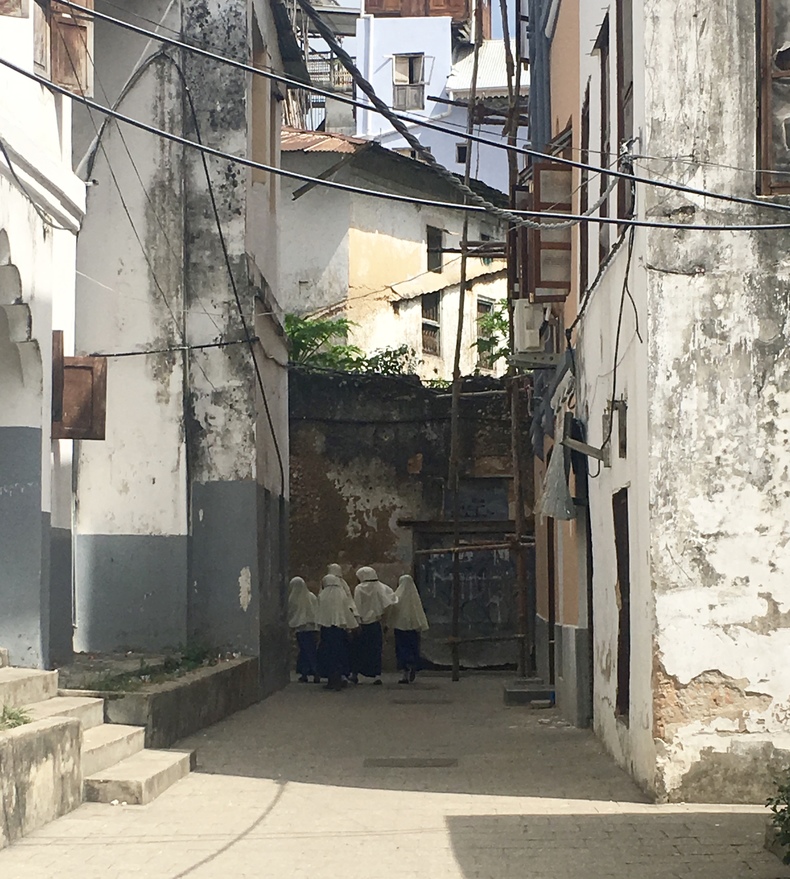
-School girls in Stone Town
Co-existing with the magical side, Zanzibar has a complex and somewhat dark history having been controlled by the Portuguese, ruled by Arabic Sultans, and a British Protectorate prior to independence. Under Arab rule, Zanzibar was a major base for the slave trade—slaves were taken from the continent, brought to Zanzibar and then transported to the Arabic World. Stone Town (the historic part of Zanzibar City) was one of the last open slave markets in the world and you can visit the former slave chambers which are under the Anglican Church, built by Anglican missionaries after the close of the slave market.
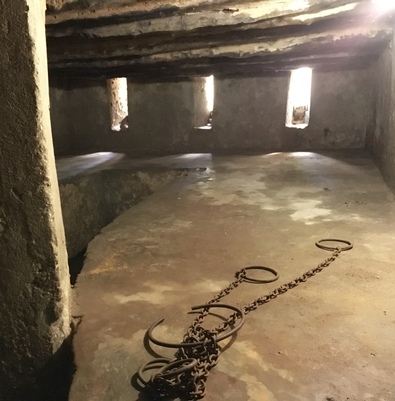
-Slave Chambers, Stone Town
-Stone Town
Slaves were treated deplorably in the journey to Zanzibar and thereafter. Slaves were forcibly marched great distances with little sustenance and many died along the way. While being kept in the underground slave chambers, slaves were chained by their necks and purposefully next to persons who spoke different languages so that they could not communicate or instigate rebellion. When frequent flooding occurred (the slave chambers are underground and the streets in Zanzibar often flood when it rains) slaves were not unchained or moved and many drowned. Slaves that survived the death marches, floods and other hardships could be sold for a higher price. While it is said that the Arabic slave trade was the most brutal in the world, this widely held belief (whether accurate or not) was also used as justification for European control over and consequent brutalities in Africa during this period, most notably the atrocities committed by the Belgians in the Congo under King Leopold II. The public perception of Arabic brutality and the evolving anti-slavery sentiment in general persuaded Europeans that western involvement in the region was much preferable and even ‘humanitarian’ in comparison (although some brutalities committed by Europeans were equally harmful or even worse).
The streets of Stone Town are a labyrinth of narrow streets, intricate architecture, and vibrantly clad citizens. Zanzibar is well known for ornately-carved doors, a plethora of spices, fresh fruits and fish, excellent snorkelling, red monkeys, and of course significant poverty. While tourism seems to have improved livelihoods and the economy significantly, we noticed that nearly all resort and bungalow owners are expats. While some had clearly spent significant time and energy providing training and other skills that will improve the job prospects of their Zanzibari staff, others seemed to do little to positively contribute to the local communities despite the fact that they were profiting from their resources and presumably cheap labour. There were few initiatives to contribute funding (from the significant hotel profits) or human resources to education, health or to environmental clean-up. Education and health statistics appear to be dismal and there are piles of trash along many of the otherwise pristine beaches and there is no clean-up infrastructure. No one had even bothered to donate bins that would allow private persons to clean up trash from the beaches and their is a need for trainings on for example, the impact of garbage and sewage on the fishing and tourism industries. Given the recent bout with cholera in May 2016, one would think that the government, NGOs and private citizens would put more effort into preserving their health and environment—an end in itself and a prerequisite to safeguarding livelihoods. When we first visited Zanzibar last May, we were first told there was “only a little bit of cholera” and discussion of cholera was completely avoided in the media—presumably so as not to deter tourism. Upon arrival, we asked a Kenyan restauranteur about the cholera situation and were informed that it was being completely downplayed and somewhat ignored by the government. While there had been cholera camps set up, there had been several deaths a day for weeks. The restauranteur informed us that cholera was not only in ‘far off places’ as we had been told, but was an issue for example, in a village only three kilometres from where we were staying near Paje. The cholera outbreak posed enough danger that the restaurant was using bottled water for all cooking.
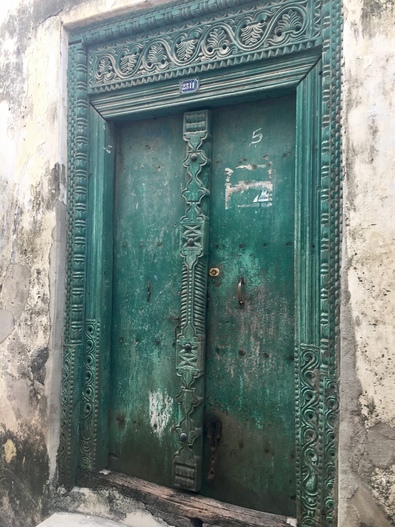
-A Stone Town door
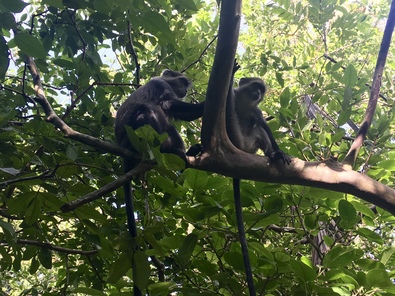
-Red Monkeys, endemic to Unguja, the main island of Zanzibar
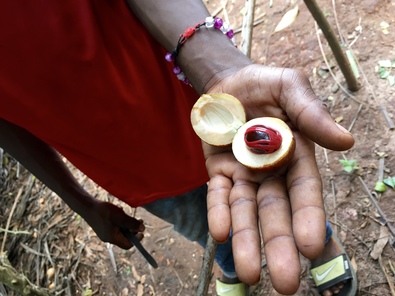
-Spice tours provide employment for locals
Contributing to the developmental challenges, the political situation in Zanzibar is complicated. Zanzibar is somewhat autonomous, with its own President and House of Representatives and with representation—albeit said to be somewhat puppet-like—at the national Parliament. During the 2015 election for the Zanzibar presidency, there were irregularities and a new election was called, which was boycotted by the opposition. Ultimately, the election was called for the majority CCM candidate over the opposition CUF candidate. The election is widely considered by Zanzibar citizens to be a sham. Despite these irregularities, there was no post-election violence which has been an issue in the past. Many Zanzibar citizens range from discontented to angry with the current political situation and the lack of meaningful representation and accountability despite Zanzibar's financial contributions to the Union. Indeed, Zanzibar contributes significantly to the economy through tourism and very high taxes and the country as a whole is virtually broke. Providing further financial incentive for falsifying election results, the opposition candidate had pledged to call for a referendum to vote whether Zanzibar should secede from mainland Tanzania if elected. Further, some have said that mineral resources have been discovered near Zanzibar, the proceeds of which may go to Zanzibar in the event of secession.
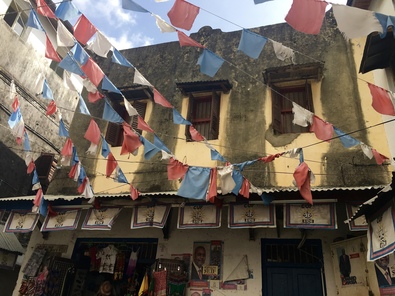
-Zanzibar citizens express support for CUF
Despite Zanzibar’s development, political, infrastructural and economic challenges, it is an eye-opening place to visit both in terms of natural beauty and because it can be seen as an idyllic cultural mesh where there is no question whether human differences are acceptable. Besides, Tanzanian and other political turmoil in the region is starting to seem preferable to populist,hateful, nationalistic and simply dangerous politics in certain other places.
-Stone Town at sunset from the rooftops
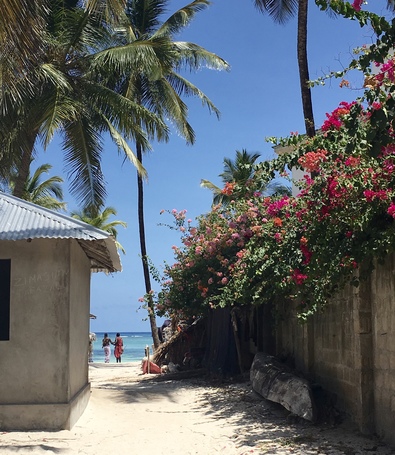
-A tropical paradise
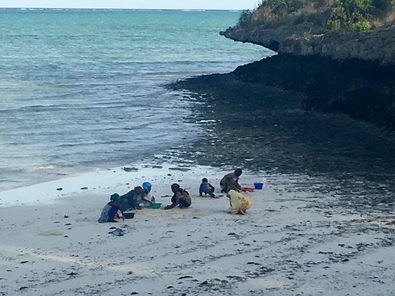
-Women and children collecting small sea creatures and edible things, near Jambiani
Living in the world. Humanitarian. Advocate for health, human rights and equality. Documenting experiences and observations.

